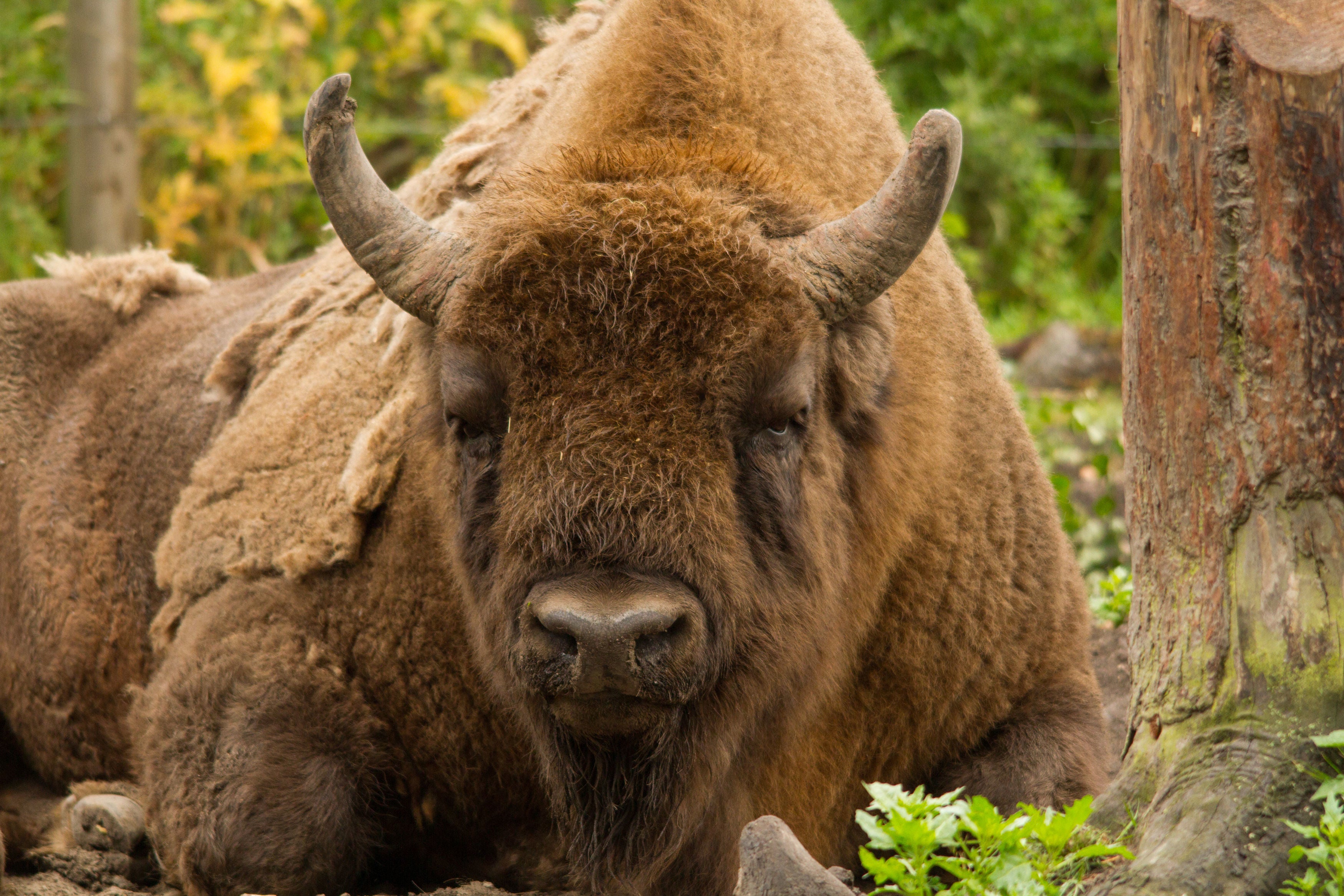We must get behind radical rewilding initiatives such as reintroducing bison to Britain
The European bison are nature’s finest ‘eco engineers’


Your support helps us to tell the story
From reproductive rights to climate change to Big Tech, The Independent is on the ground when the story is developing. Whether it's investigating the financials of Elon Musk's pro-Trump PAC or producing our latest documentary, 'The A Word', which shines a light on the American women fighting for reproductive rights, we know how important it is to parse out the facts from the messaging.
At such a critical moment in US history, we need reporters on the ground. Your donation allows us to keep sending journalists to speak to both sides of the story.
The Independent is trusted by Americans across the entire political spectrum. And unlike many other quality news outlets, we choose not to lock Americans out of our reporting and analysis with paywalls. We believe quality journalism should be available to everyone, paid for by those who can afford it.
Your support makes all the difference.Let me take you back to 4000 BC: the dawn of the Neolithic period in Britain. Wonderful advances were being made in the insulation of Stone Age houses; man had discovered that a mixture of clay, straw and dung kept out the biting winds.
“And who were the chief defecators on Neolithic doorsteps?” you might ask. The answer: Steppe Bison. These 900kg majestic herbivores roamed free all over the United Kingdom – and their ubiquity would not have caused Stone Age man so much as to turn an unkempt hair.
This is all most diverting, I hear you say, but in the days of fibreglass wall insulation, surely the Kent Wildlife Trust and Wildwood Trust can’t be heralding the return of Europe’s largest land mammals merely for their copious deposits? No. In fact, they have far more eco-value these days.
Follow all our latest coverage on the climate crisis here
The European bison – the closest relatives of our Neolithic ancestors' Steppe Bison wall-paperers – are nature’s finest “eco engineers”. This is mostly down to their muscularity and heft. When allowed to roam free, as they will in West Blean’s 200 hectare (500 acre) enclosure, they thrash about with gay abandon; turning up the turf and thereby inadvertently diversifying the forest floor.
How does this help? Well, it promotes a tremendously complex root system. It’s not the roots, per se, that work their magic in terms offsetting our emissions, but the mycorrhizal fungi all about them.
Anyone who watched the wonderful Judi Dench: My Passion for Trees will know that woodlands are in constant conversation. The fungal pathways underneath them are like emails conveying crucial messages, that one can well imagine as: “Hello, Yew! It’s Aunt Elm here, I should release more tanin if I were yew, I’m hopelessly under caterpillar siege and they so dislike the taste!”
This is fascinating in itself, but mychorrizal fungi serve an even more important purpose: they are the greatest carbon guzzlers on the planet. Dr David Johnson of New Mexico State University has successfully demonstrated that you can sequester up to 20 tonnes of carbon per hectare, per year.
Since The Kent Wildlife Trust will have Bison creating the optimal forest floor over 200 hectares, I make that 4000 tonnes per year. It’s a dizzying figure, and all down to these beautiful creatures who have no idea of the wonderful impact they have, with every bash and thrash.
The Kent Wildlife Trust are not alone in their call for radical re-wilding initiatives to improve the health of our planet. Sir David Attenborough has argued that nature often posits the solutions, so we must “rewild the world“. And where better to start than existing woodlands?
“Forests are fundamental to recovery - bio-centres of diversity,” said Attenborough. ”The wilder and more diverse the more effective... Nature is our biggest ally.”
And bison are, in turn, the forest floor's biggest ally. I visited Wildwood, in West Blean, twice last year. I met Orsk and Hades, two magnificent European bison raised on site, not roaming wild, but in one of the park enclosures. One could see instantly how they could contribute.
They were mid coat-shedding, and that process alone is wonderful for the soil: a 900kg creature writhing around like an exfoliating narwhal, coupled with all that they leave behind; creates a veritable cornucopia of nourishment.
Wildwood now seeks two rangers in preparation for the introduction of Orsk's and Hades’ wild cousins in 2022. What a thrilling post! I can attest that observing these creatures, and imagining their ancient cousins roaming free 6000 years ago, is a profoundly moving experience – and one that has huge benefits for our planet.
Tom Read-Wilson is currently appearing on Celebrity Best Home Cook on BBC One.



Join our commenting forum
Join thought-provoking conversations, follow other Independent readers and see their replies
Comments